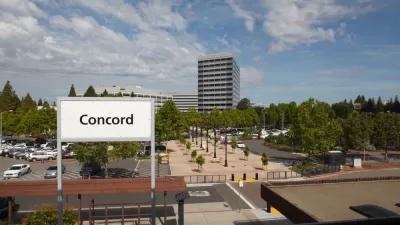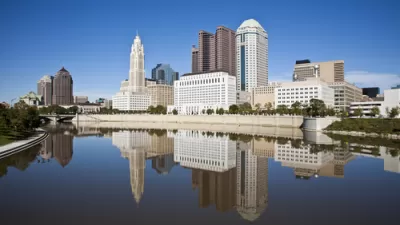Despite a dramatic decline in the number of, and attendance at, conventions nationwide, cities across America are investing their limited resources in building and upgrading convention centers. Fred A. Bernstein explores the irony.
It seems as though cities across America, large and small, haven't received the message about the precipitous decline in the nation's convention business. According to Bernstein, "In the last year alone, Indianapolis and Philadelphia have opened
sprawling new centers, while plans for such facilities are being
floated in Baltimore, Los Angeles, San Francisco, Seattle, and Boston...It's much the same in smaller cities: Spokane's convention center,
enlarged only six years ago, is being readied for a new, $60 million
expansion."
So what gives? "Loren G. Edelstein, editor of Meetings and Conventions magazine,
says that 'while a convention center itself might not be making money,'
it may be paying for itself with revenue the facility brings to the
city in other ways."
"But such claims are difficult to prove. Critics like
Professor Sanders believe the convention center boosters are making a
buyer's market-in which supply now far outstrips demand-even more
unbalanced. Though the decline in attendance began before 2008, he
says, 'the recession worsened an already bad situation.'"
FULL STORY: Straying from Convention

Alabama: Trump Terminates Settlements for Black Communities Harmed By Raw Sewage
Trump deemed the landmark civil rights agreement “illegal DEI and environmental justice policy.”

Planetizen Federal Action Tracker
A weekly monitor of how Trump’s orders and actions are impacting planners and planning in America.

The 120 Year Old Tiny Home Villages That Sheltered San Francisco’s Earthquake Refugees
More than a century ago, San Francisco mobilized to house thousands of residents displaced by the 1906 earthquake. Could their strategy offer a model for the present?

In Both Crashes and Crime, Public Transportation is Far Safer than Driving
Contrary to popular assumptions, public transportation has far lower crash and crime rates than automobile travel. For safer communities, improve and encourage transit travel.

Report: Zoning Reforms Should Complement Nashville’s Ambitious Transit Plan
Without reform, restrictive zoning codes will limit the impact of the city’s planned transit expansion and could exclude some of the residents who depend on transit the most.

Judge Orders Release of Frozen IRA, IIJA Funding
The decision is a victory for environmental groups who charged that freezing funds for critical infrastructure and disaster response programs caused “real and irreparable harm” to communities.
Urban Design for Planners 1: Software Tools
This six-course series explores essential urban design concepts using open source software and equips planners with the tools they need to participate fully in the urban design process.
Planning for Universal Design
Learn the tools for implementing Universal Design in planning regulations.
Clanton & Associates, Inc.
Jessamine County Fiscal Court
Institute for Housing and Urban Development Studies (IHS)
City of Grandview
Harvard GSD Executive Education
Toledo-Lucas County Plan Commissions
Salt Lake City
NYU Wagner Graduate School of Public Service





























